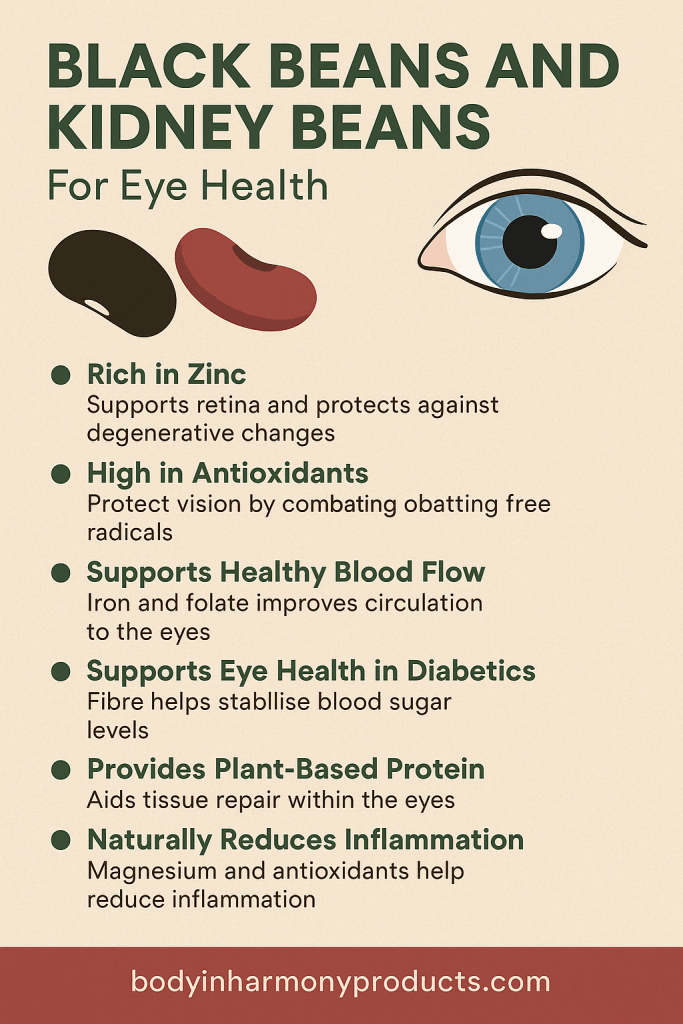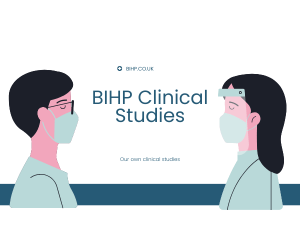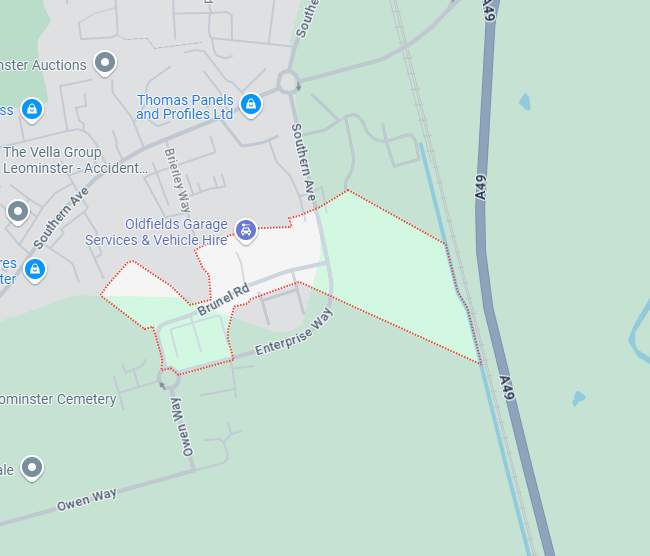Black Beans and Kidney Beans: A Natural Boost for Eye Health and Vision
When we think about foods that support vision, carrots usually take the spotlight. However, there’s a lesser-known pair of superfoods that deserve attention—black beans and kidney beans. Packed with antioxidants, plant-based protein, and essential nutrients, these humble legumes offer real benefits for your eyes.
In this article, I’ll explore how they support eye health, improve circulation, and protect your vision over time.
What Makes Black Beans and Kidney Beans So Beneficial?
These beans are loaded with key nutrients like zinc, folate, and iron. They also contain powerful plant compounds such as polyphenols and anthocyanins—known for their antioxidant effects.
Because healthy circulation is essential for eye function, beans play a valuable role in maintaining clear vision and overall eye wellness.
Eye Health Benefits of Black Beans and Kidney Beans
Let’s take a closer look at how these foods can help keep your eyes healthy and sharp.
1. Rich in Zinc for Retina Support
Zinc is essential for transporting vitamin A to the retina, where it supports night vision and protects against degeneration. These legumes offer a steady plant-based source of this important mineral.
Including them regularly in your meals may help reduce the risk of age-related decline.
2. High in Antioxidants That Protect Vision
Black beans contain anthocyanins, while kidney beans provide polyphenols—both known to combat oxidative stress in eye tissues.
Because of this, they can help prevent damage from free radicals and reduce long-term eye fatigue.
3. Promotes Healthy Blood Flow to the Eyes
Iron and folate in these beans help support red blood cell production, which improves oxygen delivery to tissues, including your eyes.
Improved circulation helps nourish the retina and keeps vision clearer for longer.
4. Supports Eye Health in Diabetics
For those managing diabetes, keeping blood sugar balanced is crucial. The fibre content in legumes helps slow sugar absorption and protect sensitive tissues, like the small blood vessels in the eyes.
This makes them a helpful addition to diabetic-friendly meal plans.
5. Provides Plant-Based Protein for Repair
Protein supports the regeneration of tissues throughout the body—including those in the eyes. Beans are a valuable protein source for anyone cutting back on meat.
They help maintain healthy structure and function across all systems.
6. Naturally Reduces Inflammation
Inflammation can lead to pressure and discomfort around the eyes. Fortunately, magnesium and antioxidants in these beans help calm that process naturally.
Their anti-inflammatory profile makes them especially helpful if you spend long hours in front of screens.
Easy Ways to Add Beans to Your Meals
You can enjoy these legumes in many ways. For example:
-
Toss into soups, stews, or pasta dishes
-
Blend into dips like black bean hummus
-
Stir into salads, wraps, or wholegrain bowls
Canned versions are convenient—just rinse them well. Dried beans take longer but give you full control over salt and texture.
Who Should Be Mindful?
Although beans are safe for most people, a few should take care. If you’re prone to kidney stones or gout, speak with a practitioner before increasing intake.
Also, ensure kidney beans are fully cooked—undercooked versions can cause digestive upset.
What the Research Says
Recent research highlights the benefits of beans for cardiovascular and eye health. Their antioxidant profile, combined with stabilising effects on blood sugar and circulation, make them especially useful for long-term wellness.
This aligns closely with traditional dietary patterns in cultures known for strong, healthy ageing.
Final Thoughts on Black Beans and Kidney Beans
Affordable, accessible, and deeply nutritious, black beans and kidney beans offer more than just protein and fibre. Their impact on eye health, circulation, and inflammation makes them an essential part of any vision-supportive diet.
If you’re looking to protect your eyesight with food, these simple ingredients can make a big difference.
Black beans and kidney beans aren’t just good for your eyes — they’re part of a much bigger family of health-boosting legumes.
Discover 20 examples of legumes you can easily add to your meals and find out how they support everything from digestion to heart health.
Nourishing the body with whole foods plays an important role in supporting long-term physical balance, including how the eyes are supported over time. Foods such as black beans and kidney beans contribute plant-based nutrients that help maintain circulation and overall vitality as part of a varied diet. This gentle, food-first approach fits naturally within Physical Wellbeing | Supporting Balance in Everyday Life, where everyday choices are explored as part of maintaining comfort and resilience without focusing on isolated body parts.





